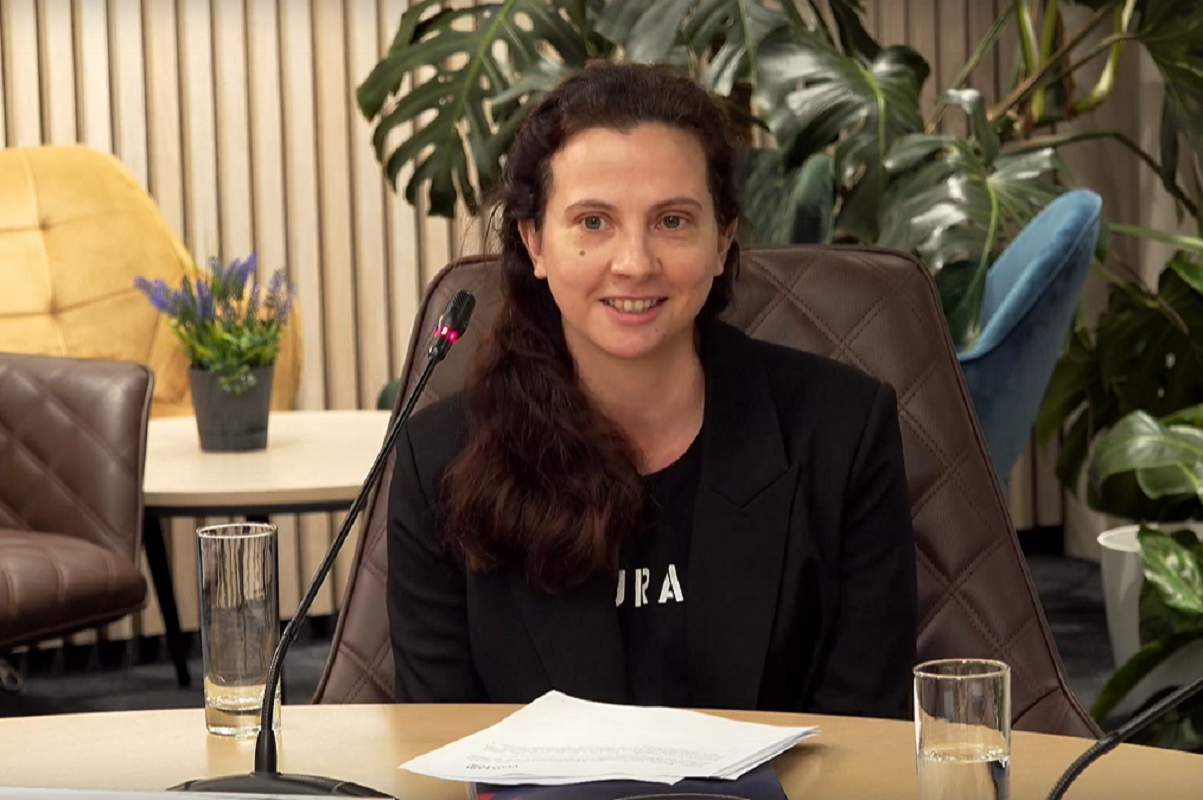Olga Yakubovich, Laureate of the Presidential Prize of the Russian Federation, Professor at St Petersburg University: Geology will ensure Russia’s development for decades to come
Olga Yakubovich, a geologist and Professor at St Petersburg University, has participated in a roundtable discussion on the Decade of Science and Technology in Russia. The researcher discussed the key challenges facing geologists today.

The editorial board of the Komsomolskaya Pravda Media Group hosted the roundtable discussion ‘The third year of the Decade of Science and Technology: Russia’s early-career researchers’. Olga Yakubovich is Professor in Department of Geochemistry at St Petersburg University, Research Associate in the Laboratory of Isotope Geology at the Institute of Precambrian Geology and Geochronology of the Russian Academy of Sciences, and winner of the Presidential Prize of the Russian Federation in Science and Innovation for Young Scientists. Speaking at the meeting, she noted that geology as a science faces both applied and fundamental challenges.
"If we talk about the latter, I think it is the prediction of earthquakes. We do not know how to do that. We cannot predict them even a little bit in advance, we cannot warn. Whoever can solve this problem will save the lives of millions of people," said Olga Yakubovich.
In the year of the 300th anniversary of St Petersburg University, Olga Yakubovich won the annual Presidential Prize in Science and Innovation for Young Scientists for her work on the development and improvement of methods for determining the age of minerals by helium concentration. The team of scientists she led was the first in the world to demonstrate that this approach could be used to accurately determine the time of formation of platinum, gold, and pyrite. Since pyrite is a mineral that occurs in all types of deposits, the method developed by the St Petersburg University researcher makes it possible to quickly and inexpensively determine whether a particular natural site is promising for the discovery of large deposits of valuable metals.
Olga Yakubovich, Professor at St Petersburg University, also emphasised the development of ecology as a crucial priority for the country’s overall progress. The future generation of scientists has the goal of transitioning to hydrogen energy. "Meanwhile, no natural sources of hydrogen have been discovered in the world yet," the expert noted.
Olga Yakubovich highlighted another pressing challenge for geologists in Russia today: the development of environmentally friendly and safe methods for lithium extraction, as the current processes cause severe damage to aquatic ecosystems and could lead to an environmental catastrophe in future.
President of the Russian Federation Vladimir Putin has declared 2022–2031 the Decade of Science and Technology in Russia. During this period, a series of initiatives, projects, and activities are planned to strengthen the role of science and technology in addressing critical challenges for society and national development. One of the key objectives of the Decade is to attract young people to science.
"Humans have significantly altered the Earth and its environment, and the planet has already experienced several serious natural crises. For effective development and the preservation of life, it is more important than ever for us to understand how our actions impact the planet and what consequences they may bring. I am confident that scientific knowledge will help us achieve this," concluded Olga Yakubovich, winner of the Presidential Prize of the Russian Federation.
During the roundtable, expert opinions on current scientific and technological issues were also shared by: Andrei Kotelnikov, President of the Council of Young Scientists of the Russian Academy of Sciences and Assistant to the Director of the Joint Institute of High Temperatures of the Russian Academy of Sciences; Alexander Chernokulsky, Deputy President of the Council of Young Scientists of the Russian Academy of Sciences and Deputy Director of the Obukhov Institute of Atmospheric Physics of the Russian Academy of Sciences; Fedor Belousov, Member of the Council of Young Scientists of the Russian Academy of Sciences and Senior Research Associate at the Central Economics and Mathematics Institute of the Russian Academy of Sciences; and other members of the Council of Young Scientists of the Russian Academy of Sciences. The event was moderated by Sergei Rybakov, Programme Director of the Vostok Club.

